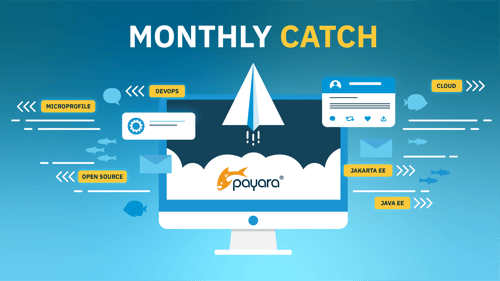New Webinar Series! Dismiss the Myths: Get to Know Jakarta EE
Published on 14 Jun 2021
 by Priya Khaira-Hanks
by Priya Khaira-Hanks
Last week, we announced our exciting new webinar series, 'Dismiss the Myths: Get to Know Jakarta EE (Java EE). This is a series of 6 webinars, every Wednesday at 3.00pm BST for the next 6 weeks - with the first one taking place this Wednesday!
Our CEO and FounderSteve Millidge is leading this series, taking one common misconception about Jakarta EE ( previously Java EE ) at a time. Turns out, you might be wrong in thinking Java is behind the times...
This is also the perfect webinar series if you have heard Jakarta EE or Java EE mentioned but aren't sure what it is, what the namespace change means or where its future lies. Steve will be catering to users who are new to the technology as well as long-time Jakarta EE developers.
Why You Should Watch
1. New Doesn't Mean Better - We're Not Afraid to Speak Our Minds!
We're not afraid to challenge common opinions at Payara Services. Our team are keen to provide a balanced viewpoint.
We've done this before, dispelling the hype around new technologies. People can become distracted by the "shiny and new" and do not critically examine whether the buzzword on everyone's lips is actually right for them and their project. Check out Rudy De Busscher's blog on whether you really need Kubernetes and Steve's discussion of AOT compilation to see this in action.
Being distracted by what's new also works the other way around. Java was created in 1995 and despite being over 25 years old, it's one of the most popular and widely used programming languages in the world. Java Enterprise Edition (now Jakarta EE) - the set of specifications extending Java Standard Edition (Java SE), for enterprise use - saw its first release not long after, in 1999.
This means it's an easy target for accusations of being old, outdated, and not suited to more recent areas of software development, like the move towards microservices and cloud native technologies. However, just because something is established, doesn't mean it isn't evolving to keep up with the times, and often it can be a better fit for your business.
2. We're Disproving Jakarta EE's Reputation of Outdatedness, Step by Step
Across the 6 webinars, Steve will break down the negative aspect of Jakarta EE's reputation, and tackle each element one by one:
- Is Java EE Outdated and Dead? (16/06, 3PM BST)
- Are Java EE Application Servers Heavy (23/06, 3PM BST)
- Is Java EE Cloud-Native? (30/06, 3PM BST)
- Can Java EE do Microservices? (07/07, 3PM BST)
- Do Java EE Standards Matter? (14/07, 3PM BST)
- Is the Java EE Deployment Model Out of Date? (21/07, 3PM BST)
You can register for all 6 sessions or pick and choose.
3. We've Got the Experience
We're more than qualified to discuss this, being part of the Jakarta EE Working Group and developing Jakarta EE application runtimes.
Jakarta EE was moved to the open source software foundation the Eclipse Foundation in 2017, which is also when Payara Services started contributing to the technology through the Working Group - driving and shaping its future.
Payara Platform is also built to be compatible with Jakarta EE. This includes the latest release, Jakarta EE 9.1. Jakarta EE 9.1 applications can be run on Payara Platform 5, and Payara Platform 6 alpha one is very close to being ready as a Compatible Implementation.
4. The Talks Are Designed To Be Easily Digestible
We know how important it is for learning opportunities to work into a busy schedule.These talks are designed to be concise and information packed. Each one will only be 30 - 35 minutes long - so there's no reason not to fit it into your day!

If you are interested in attending, you can find full descriptions of each talk here - and the links to register on MeetUp or Zoom.
Related Posts
5 Warning Signs Your Ageing Application Server Is Holding Back Your Java Team
Published on 08 Sep 2025
by Chiara Civardi
0 Comments
The Payara Monthly Catch - August 2025
Published on 02 Sep 2025
by Dominika Tasarz
0 Comments




